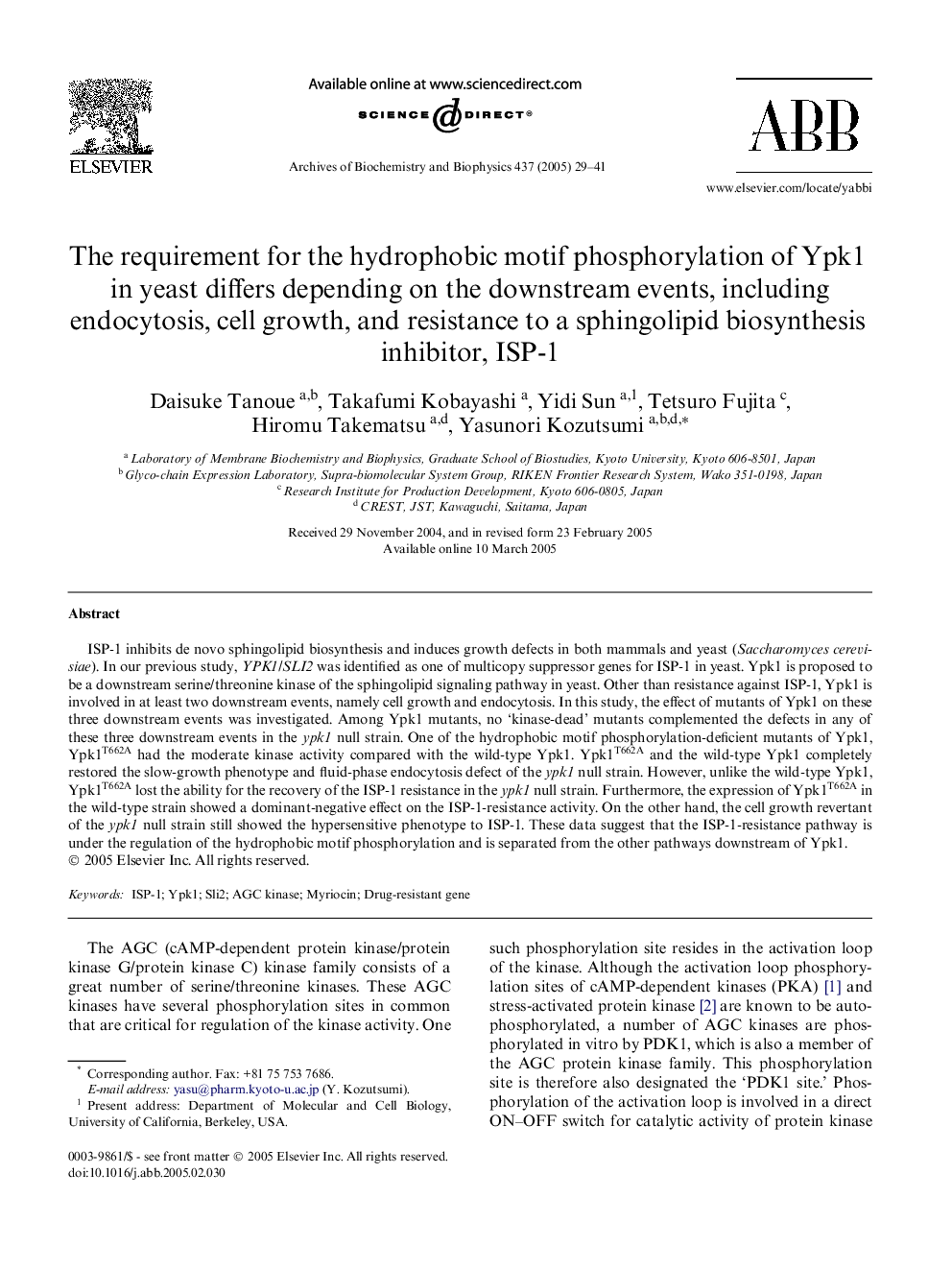| Article ID | Journal | Published Year | Pages | File Type |
|---|---|---|---|---|
| 9882229 | Archives of Biochemistry and Biophysics | 2005 | 13 Pages |
Abstract
ISP-1 inhibits de novo sphingolipid biosynthesis and induces growth defects in both mammals and yeast (Saccharomyces cerevisiae). In our previous study, YPK1/SLI2 was identified as one of multicopy suppressor genes for ISP-1 in yeast. Ypk1 is proposed to be a downstream serine/threonine kinase of the sphingolipid signaling pathway in yeast. Other than resistance against ISP-1, Ypk1 is involved in at least two downstream events, namely cell growth and endocytosis. In this study, the effect of mutants of Ypk1 on these three downstream events was investigated. Among Ypk1 mutants, no 'kinase-dead' mutants complemented the defects in any of these three downstream events in the ypk1 null strain. One of the hydrophobic motif phosphorylation-deficient mutants of Ypk1, Ypk1T662A had the moderate kinase activity compared with the wild-type Ypk1. Ypk1T662A and the wild-type Ypk1 completely restored the slow-growth phenotype and fluid-phase endocytosis defect of the ypk1 null strain. However, unlike the wild-type Ypk1, Ypk1T662A lost the ability for the recovery of the ISP-1 resistance in the ypk1 null strain. Furthermore, the expression of Ypk1T662A in the wild-type strain showed a dominant-negative effect on the ISP-1-resistance activity. On the other hand, the cell growth revertant of the ypk1 null strain still showed the hypersensitive phenotype to ISP-1. These data suggest that the ISP-1-resistance pathway is under the regulation of the hydrophobic motif phosphorylation and is separated from the other pathways downstream of Ypk1.
Keywords
Related Topics
Life Sciences
Biochemistry, Genetics and Molecular Biology
Biochemistry
Authors
Daisuke Tanoue, Takafumi Kobayashi, Yidi Sun, Tetsuro Fujita, Hiromu Takematsu, Yasunori Kozutsumi,
